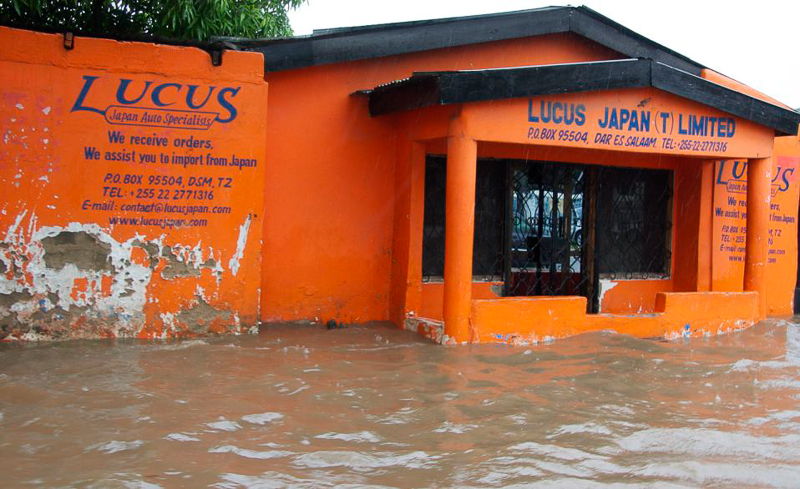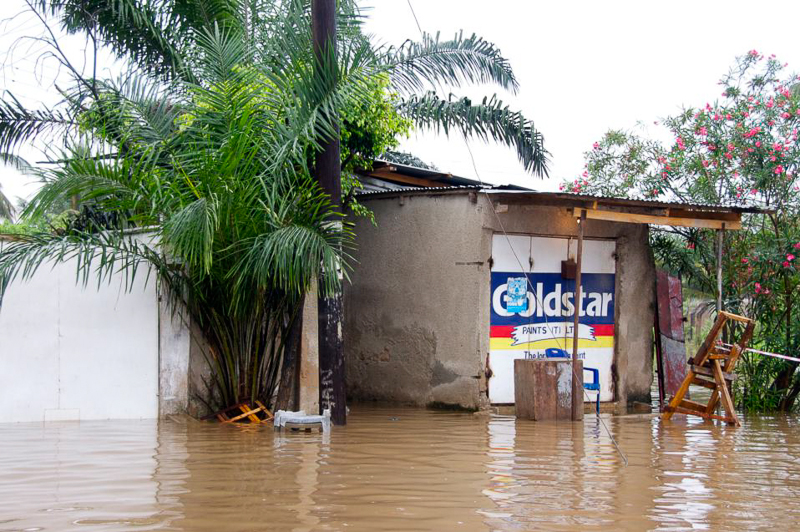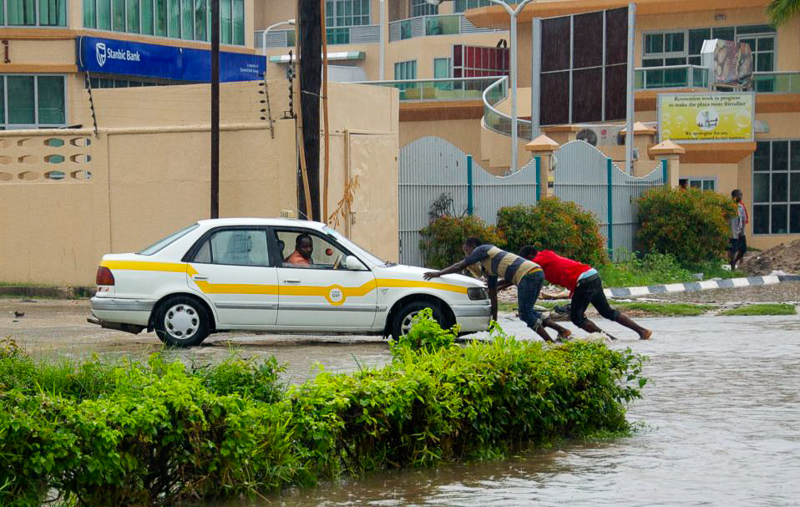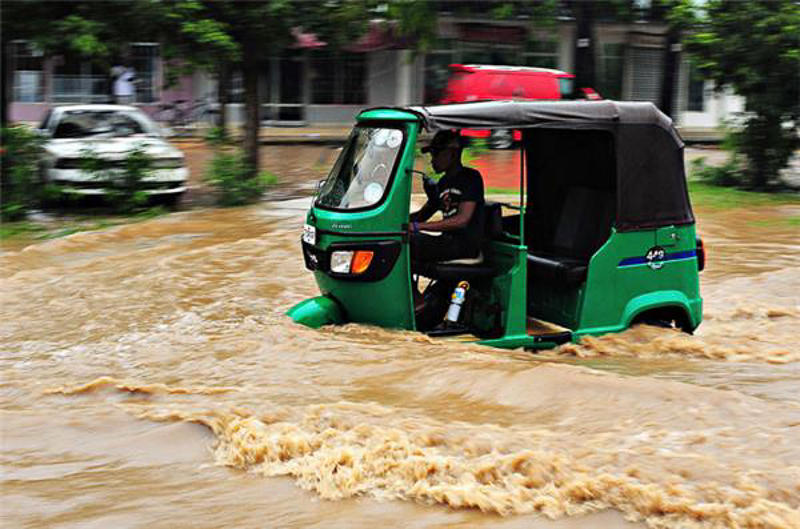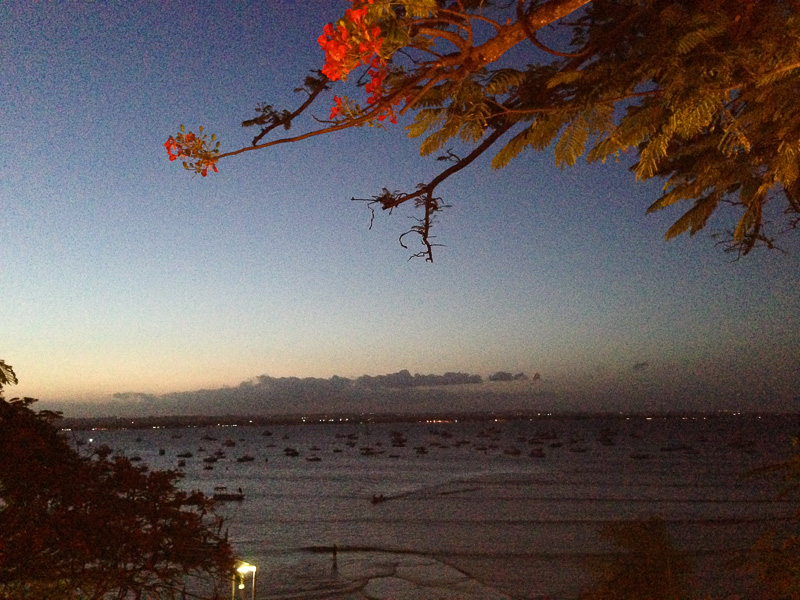At first, the rains here in Africa (cue Toto) seemed completely unlike the monsoon rains of Asia, as they occurred with far lesser frequency and for shorter periods of time. Here, at first, the rainy season meant something less palpable than a few monsoon months; an ambiguous length of time where downpours of rain might occur at oddly short intervals, interspersed between periods of beautiful blue skies. The rains didn’t come everyday, and hardly for more than fifteen minutes at a time.
That was at first. And indeed, for the nine months I was first here, Dar’s ‘rainy’ weather was like this, all the way until two weeks ago. Then for four nights in a row (and during some mornings), rain thundered on rooftops, conveniently pausing during most of the daytime hours but inconveniently coming back again each evening and flooding homes, businesses, and roads. Medical supplies washed up on our beloved Yacht Club’s typically pristine beach. Our household staff’s homes in the poorer areas of town washed over. Typical 20 minute commutes extended to 1.5 hours. It was the rainiest I’ve seen Dar in my near one-year living here.
This is when I am reminded—despite the fact that I can find Nutella on my supermarket shelves—that I am living in a 3rd world country. Severe lack of infrastructure and planning caused what would be a nuisance in America: four days of rain, to render much of the city frustratingly unaccessible. And when I say a lack of infrastructure, I’m not talking about the fact that we need to pave a stretch of road; I’m talking about the need to create complicated irrigation systems, implement systems of drainage, and re-map entire communities and their layouts.
Last week, I felt terrible pangs of irony as I watched rain water pool into muddy pits and sloshing about the sides of the roads. In a country where untainted water is scarce, there it was just falling out of the sky, potentially available for anyone who could collect it, but instead wreaking havoc to the same folks that desperately needed it. It seemed like the most vengeful example of the snarky comeback, ‘you get what you ask for’.
It’s been raining a little more lately, not for four straight nights, but on most days viscious downpours for fifteen minutes, half an hour, a few times a day. This morning I left the house, looked at the bright blue sky, and forwent my umbrella. Three hours later sitting in a second-story coffee shop, I thought we were being attacked by flying monkeys on the roof (it was just, disconcertingly, very VERY loud rain). Bless the rains in Africa.
I don’t have any of my own photos of the rains and flooding it may cause here in Dar, but in order of appearance the photos are from 1), 2), and 3) a blog I just came across called ‘View From Dar‘ (no longer updated), 4) Al Jazeera, from a feed with weather photos from across the world, and 5) an AllAfrica.com article from the floods last year

